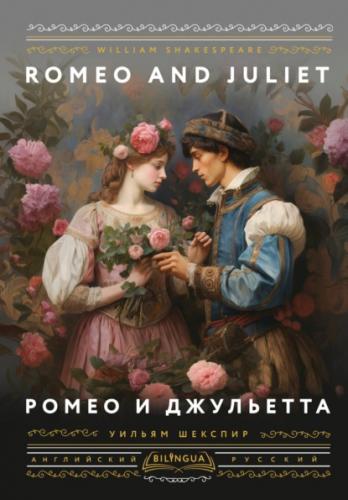Ay, Nurse; what of that? Both with an R.
Ah, mocker! That’s the dog’s name. R is for the-no, I know it begins with some other letter, and she hath the prettiest sententious of it, of you and rosemary, that it would do you good to hear it.
Commend me to thy lady.
Ay, a thousand times. Peter!
[Exit Romeo]
Anon.
Before and apace.
[Exeunt.]
Scene V
Capulet’s Garden. Enter Juliet.
The clock struck nine when I did send the Nurse,
In half an hour she promised to return.
Perchance she cannot meet him. That’s not so.
O, she is lame. Love’s heralds should be thoughts,
Which ten times faster glides than the sun’s beams,
Driving back shadows over lowering hills:
Therefore do nimble-pinion’d doves draw love,
And therefore hath the wind-swift Cupid wings.
Now is the sun upon the highmost hill
Of this day’s journey, and from nine till twelve
Is three long hours, yet she is not come.
Had she affections and warm youthful blood,
She’d be as swift in motion as a ball;
My words would bandy her to my sweet love,
And his to me.
But old folks, many feign as they were dead;
Unwieldy, slow, heavy and pale as lead.
Enter Nurse and Peter.
O God, she comes. O honey Nurse, what news?
Hast thou met with him? Send thy man away.
Peter, stay at the gate.
[Exit Peter.]
Now, good sweet Nurse, – O Lord, why look’st thou sad?
Though news be sad, yet tell them merrily;
If good, thou sham’st the music of sweet news
By playing it to me with so sour a face.
I am aweary, give me leave awhile;
Fie, how my bones ache! What a jaunt have I had!
I would thou hadst my bones, and I thy news:
Nay come, I pray thee speak; good, good Nurse, speak.
Jesu, what haste? Can you not stay a while? Do you not see that I am out of breath?
How art thou out of breath, when thou hast breath
To say to me that thou art out of breath?
The excuse that thou dost make in this delay
Is longer than the tale thou dost excuse.
Is thy news good or bad? Answer to that;
Say either, and I’ll stay the circumstance.
Let me be satisfied, is’t good or bad?
Well, you have made a simple choice; you know not how to choose a man. Romeo? No, not he. Though his face be better than any man’s, yet his leg excels all men’s, and for a hand and a foot, and a body, though they be not to be talked on, yet they are past compare. He is not the flower of courtesy, but I’ll warrant him as gentle as a lamb. Go thy ways, wench, serve God. What, have you dined at home?
No, no. But all this did I know before.
What says he of our marriage? What of that?
Lord, how my head aches! What a head have I!
It beats as it would fall in twenty pieces.
My back o’ t’other side, – O my back, my back!
Beshrew your heart for sending me about
To catch my death with jauncing up and down.
I’faith, I am sorry that thou art not well.
Sweet, sweet, sweet Nurse, tell me, what says my love?
Your love says like an honest gentleman,
And a courteous, and a kind, and a handsome,
And I warrant a virtuous, – Where is your mother?
Where is my mother? Why, she is within.
Where should she be? How oddly thou repliest.
‘Your love says, like an honest gentleman’,
‘Where is your mother?’
O God’s lady dear,
Are you so hot? Marry, come up, I trow.
Is this the poultice for my aching bones?
Henceforward do your messages yourself.
Here’s such a coil. Come, what says Romeo?
Have you got leave to go to shrift today?
I have.
Then hie you hence to Friar Lawrence’ cell;
There stays a husband to make you a wife.
Now comes the wanton blood up in your cheeks,
They’ll be in scarlet straight at any news.
Hie you to church. I must another way,
To fetch a ladder by the which your love
Must climb a bird’s nest soon when it is dark.
I am the drudge, and toil in your delight;
But you shall bear the burden soon at night.
Go. I’ll to dinner; hie you to the cell.
Hie to high fortune! Honest Nurse, farewell.
[Exeunt.]
Scene VI
Friar Lawrence’s Cell. Enter Friar Lawrence and Romeo.
So smile the heavens upon this holy act
That after-hours with sorrow chide us not.
Amen, amen, but come what sorrow can,
It cannot countervail the exchange of joy
That one short minute gives me in her sight.
Do thou but close our hands with holy words,
Then love-devouring death do what he dare,
It is enough I may but call her mine.
These violent delights have violent ends,
And in their triumph die; like fire and powder,
Which as they kiss consume. The sweetest honey
Is loathsome in his own deliciousness,
And in the taste confounds the appetite.
Therefore love moderately: long love doth so;
Too
